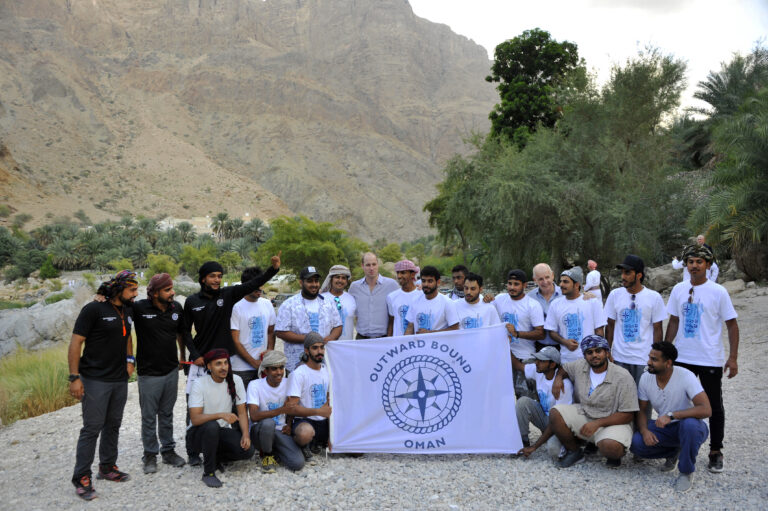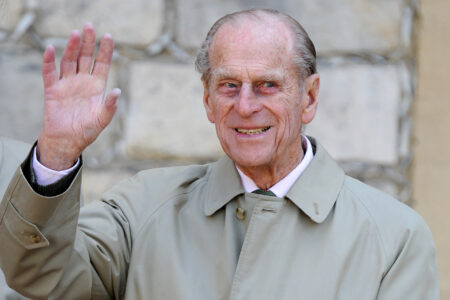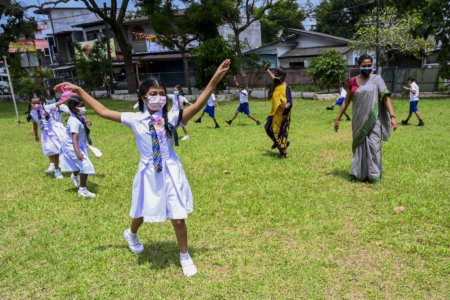
Building confidence and finding yourself is no easy task, even more so as a child.
We’ll constantly face challenges that may make us question our ability to solve them, and if we fail, we may consider ourselves failures.
This can cause us to stumble into a place where we constantly put ourselves down, even when it isn’t our fault. The younger we are when that happens, the more likely it is to cause long-term issues.
According to Kids Health, children with low self-esteem feel unsure of themselves.
They might not join activities if they believe others won’t accept or like them. This can lead to allowing others to mistreat them, and the child will have difficulty standing up for themselves. They may give up easily or not try at all.
Children may also find it hard to cope when they make mistakes, lose, or fall. So they may not do as well as they could.
As a parent, it is advisable to start building confidence in your child at a young age, even when they are in their teenage and young adult phases. And there is a programme to do it: Outward Bound.
What is Outward Bound?
Outward Bound is an international outdoor education programme network that aims to foster personal growth and social skills through the power and intensity of outdoor learning and wilderness values. Its goal is to bring out the best in its participants while creating positive experiences and memories that have lasting impacts.
The programmes develop participants’ leadership, teamwork, resilience, and self-confidence.
It pushes its participants physically and mentally to build respect and compassion, allowing them to act with care, concern, and generosity toward others.
Kurt Hann, co-founder of Outward Bound, says, “We are all better than we know. If only we can be brought to realise this, we may never again be prepared to settle for anything.”
The history of Outward Bound
In 1920, two years after World War I, German-born educator Hahn identified six declines that young people were exposed to during his time as headmaster at the Schloss Salem School. These declines were:
- Decline of Fitness due to modern methods of locomotion (movement);
- Decline of Initiative and Enterprise due to the widespread disease of spectatoritis (a passive spectator);
- Decline of Memory and Imagination due to confused restlessness of modern life;
- Decline of Skill and Care due to the weakened tradition of craftsmanship;
- Decline of Self-discipline due to the ever-present availability of stimulants and tranquilisers;
- Decline of Compassion due to the unseemly haste of modern life.
To counter the declines, Hahn wrote up an experiential educational programme at the Schloss Salem School with four elements:
- Physical fitness – exercising the body;
- Expedition – exploring the world by sea and land, alone or in groups, under challenging conditions;
- Project work – planning and executing an enterprise in research, art, or construction;
- Social service – helping the injured, sick, old, and handicapped in hospitals, homes, and rescue stations.
These elements were later carried into Outward Bound.

The programme’s name was inspired by the seamen of the First World War and the interest in educating participants through activities in the sea. Source: AFP
In 1941, the first Outward Bound school, Aberdovey Sea School, was founded in Aberdovey, Wales.
Hahn, who co-founded Outward Bound with shipping businessman Lawrence Durning-Holt, decided that the school would offer a 28-day residential course to teach young British men vital survival skills to survive harsh conditions at sea and work towards personal development, which was necessary during World War II.
Holt, an avid lover of sea training and survival, coined “Outward Bound,” likening it to a ship’s crew leaving the comfort of home and embarking on bold, daring adventures into unfamiliar territory.
In 1944, the school expanded and started accepting apprentices from industry, police, fire, and the cadets.
Later, in 1949, the Moray Sea School at Burghead, the Scottish counterpart of the Aberdovey Sea School, was launched. Approximately 800 boys aged 14-16 attended the school each year. The school later closed in 1976 due to the opening of Outward Bound Loch Eil.
As the network grew within the UK, Outward Bound expanded through the Commonwealth of Nations and later to other countries.
Now, the network is available at 38 independent Outward Bound schools in six continents and 33 countries, including Canada, the Czech Republic, Finland, New Zealand, South Korea, Singapore, and the US.
View this post on Instagram
Types of programmes available
Outward Bound programmes vary between countries.
UK
In the UK, Outward Bound is segregated into three programmes: School Residentials, Apprentices and Graduates, and Summer Adventures.
- School Residentials
For the School Residentials programme, Outward Bound partners with primary schools, secondary schools, and colleges to teach students how to believe in themselves through outdoor learning courses such as gorge walking, rock climbing, canoeing, and sailing.
Outward Bound prepares three- to five-day courses for students to experience. At the end of the course, students will feel confident and resilient, with increased emotional well-being, an understanding of the natural environment, and improved relationships with their peers.
- Summer Adventures
The Summer Adventures courses are available for those as young as ten and as old as 22. Participants can spend five days in the wilderness or 19 days at locations like Loch Eil, Ullswater, Howtown, Aberdovey, or Ogwen Cottage.
Furthermore, the courses are separated into levels.
- Basecamp: Beginner
- Ridge: Advanced Beginner
- Summit: Competent
- Pinnacle: Expert
Click here to find out more about the courses.
View this post on Instagram
Malaysia
Outward Bound was brought to Malaysia in 1952 as a “sea school” in Lumut, Perak, as an educational establishment for Malayan industries, youth organisations, trade unions, government and public authorities, parents, and others to provide character training for their young men by sending them for a course.
Outward Bound Malaysia offers several programmes:
- Children Adventure Challenge (CAC)
The Children’s Adventure Challenge course is an “enjoy-as-you-learn” course that teaches children how to be independent, take charge, and master teamwork. Participants can participate in wall climbing, confidence-building activities, rappelling, jungle trekking and hiking, solo camping, and kayaking.
The course lasts eight days and is for children ages 10 to 12.
- Youth Adventure Challenge (YAC)
The Youth Adventure Challenge course combines theory and practice for overall learning. It helps enhance self-confidence and self-motivation, master team dynamics and social awareness, and cultivate physical fitness and proficiency. Participants can enjoy rock climbing, community service, first aid certification, whaler sailing expeditions, jungle trekking, and more.
The course lasts eight days and is for teenagers ages 13 to 17.
- Pack ‘N’ Paddle (PnP)
Pack ‘N’ Paddle is a course that aims to immerse participants in experiences that go beyond textbooks and classrooms. During their time there, participants will experience outdoor camping, leadership, team building, and self-responsibility.
The course lasts five days and is for teenagers ages 13 to 17.
- 25-Day Classic Course
This is a classic Outward-Bound course. Participants will explore mountains, oceans, rivers, and jungles while developing self-awareness, self-assurance, responsibilities, and mental and physical endurance.
The course is for individuals ages 18 to 50.
- Leadership Development Programme
The Leadership Development programme encourages participants to work in groups to encounter challenges together, all while developing self-confidence and team leadership skills. The outcome of this course is to instil tenacity, resilience, and competence in a planned environment.
The course lasts seven days and is for teenagers ages 18 to 50.
Customisable private programmes are also available: programmes for Families, Organisations, Special Needs, Scholars, and Students.
View this post on Instagram
Australia
In Australia, the Outward Bound organisation is reimagining the programme to recognise the opportunity for innovation and the need to address the impact of the bushfires and COVID-19.
However, the programme steers away from Outward Bound’s founding purpose: to teach sea survival skills. In Australia, hiking is the main adventure. Additionally, Outward Bound is linked with the Duke of Edinburgh’s Award.
Here are programmes your child may be interested in:
- Outward Bound Expedition
The Outward Bound Expedition is a young adult development programme that builds self-esteem, confidence, and self-discovery skills. It is for ages 15-24 and is held during the April and September school holidays. Locations available are the Australian Capital Territory, Western Australia, New South Wales, and Victoria.
- Gusty Girls Adventure
Girls and women ages 15 and over can participate in the Gusty Girls Adventure in the Walpole Wilderness, Western Australia. The 10-day programme involves trekking through Karri trees and paddling the coastline of the Southern Ocean.
- Outward Bound Junior
Outward Bound Junior is a five-day school holiday programme for 12 to 15-year-olds. It allows them to have fun and experience challenges while supported by expert instructors. Participants will also learn how to reconnect to what’s important without the distractions of mobile phones and social media.
- Outward Bound Leadership
This five-day programme is designed for adults ages 16 to 24 to discover their leadership skills and strengths. Discovering their potential as leaders can help strengthen trusted skills and help them apply themselves in all future endeavours.
Additionally, if your child is taking part in the Duke of Edinburgh’s Award, here are some programmes for your child to complete their expedition or residential section:
- Bronze Practice Adventurous Journey
- Silver Adventurous Journey Combination
- Gold Adventurous Journey Great

Other than building character, outdoor activities can help reduce stress, increase social interaction, boost immunity, and better connect to nature. Source: AFP
What parents should know about Outward Bound
Character building in the wilderness for your child to be a better person
The front of the brain which performs necessities for adults such as reasoning, planning, judgement, and impulse control, does not ultimately develop until approximately the early to mid-20s, according to Paradigm Treatment.
There are several ways for children, teenagers, and young adults to develop these necessities. This includes volunteering, playing sports, joining school clubs, working part-time, or travelling.
However, specific life skills can only be taught outside one’s household, school, or job.
Outward Bound differs from the other options.
The programme offers participants the chance to experience some time out in the wilderness, typically where not every child would be. Boundaries are also pushed safely by the facilitators, ensuring the participants learn how to overcome challenges alongside their teams.
By learning teamwork, perseverance, resilience, and self-confidence, children will build the confidence to believe in themselves and know that “if I can do this in an unknown environment, I can do anything when I’m back in a known environment.”
Not only will your child develop for themselves, but they will also learn how to care for others.
An Outward Bound participant, Declan Ward, says, “Outward Bound showed me my capacity to do great things. And to live each day with greatness.”
Another Outward Bound participant, Iqra, says that the programme helped them understand their place in the world and gave them compassion for themselves and others. “I went from doing the best I could with the coping mechanisms I had to a much broader toolkit. From being told the world is our oyster to believing it really is.”
Financial support is available
Outward Bound can be expensive. Parents would need to buy equipment, including hiking boots, indoor trainers, a camera, a watch, toiletries, and more.
This could be a setback for some who want to send their children to the programme. However, financial support is available for those who meet the requirements.
For those living in the UK and having a child in the education system, your child is eligible for financial support if you meet any of these two criteria: free school meals, low-income family, English as a second language, ethnic minority background, special educational needs, or poor educational attainment.
Canadians can opt for several funding options, such as the “pay what you can” Youth Access Fund, The Maddie Project, scholarships for BIPOC youth leaders, and Veteran Families.
Becoming closer after being apart
You and your child might be together for long periods, and they frequently depend on you regarding challenges or daily routines. Being away will help them learn independence as they will have to face the obstacles independently and appreciate you as a parent.
It is also essential to give your children space to grow by having distance.
When your child enters their teenage years, they also move towards individuation. Sending your child to Outward Bound can help show them that you trust them and are building a foundation based on positive reinforcement.
However, it is always essential for your child to come home to a supportive environment, significantly after they have stepped out of their comfort zone, faced challenges in an unknown environment, and undergone several character development in a short period.










